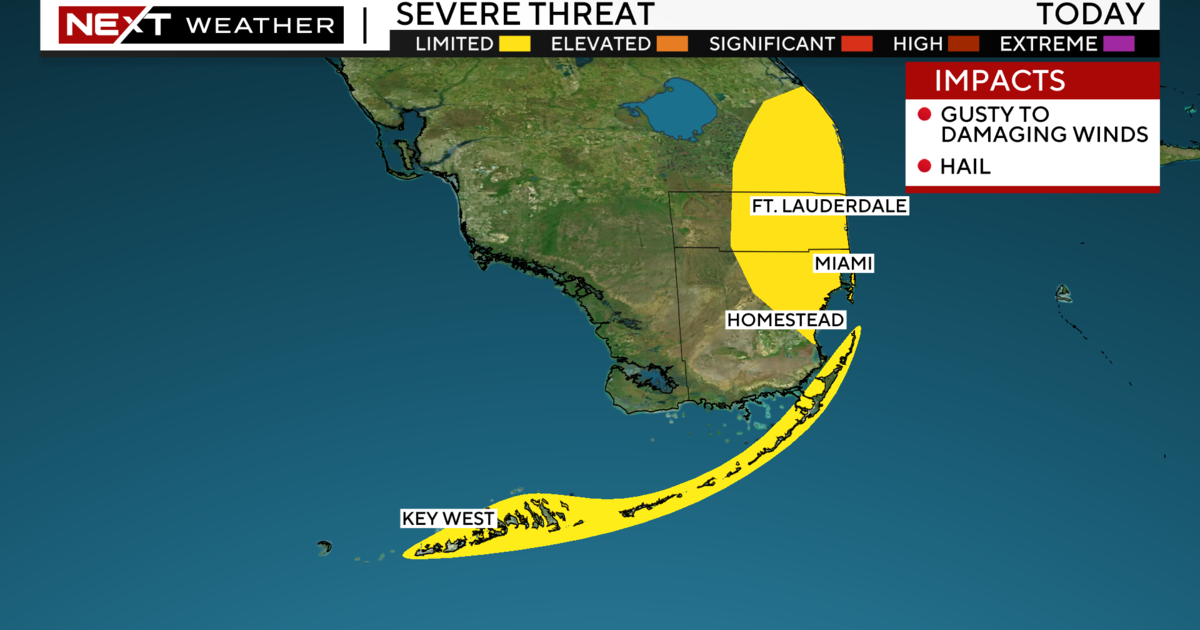March Kicks Off Rip Current Season
FT LAUDERDALE (CBSMiami) - With the start of Spring about a week away, thousands of college students on break will join snowbirds along our beautiful beaches.
While relaxing on the beach and having fun in the surf is all part of a South Florida vacation, there is a hidden danger that they may not be aware of.
March is not just the beginning of the new season, it's also the start of rip current season which doesn't end until August, according to The Sun-Sentinel.
On average 10 people drown each year as a result of rip currents. Surprisingly, rip currents kill more people in Florida during an average year than hurricanes, tornadoes and lightning combined, according to floridadisaster.org.
Guide: How To Escape A Rip Current
On beaches with lifeguards, red warning flags will fly to warn swimmers when there's an increased risk of rip currents. Beachgoers should always check the warning flags before entering the water. No one should enter the water when red flags are flying.
Rip currents are narrow, powerful currents of water that run perpendicular to the beach. These currents may extend 200 to 2,500 feet lengthwise, but they are typically less than 30 feet wide. The currents can move as fast as five miles per hour. Rip currents do not pull people under the water; instead, they carry people out towards deeper water. They can form very quickly and extend as far as 100 yards offshore.
Rip currents typically form along the beach at breaks in the offshore underwater sandbar, but they can also form near structures such as jetties and piers.
Officials say rip currents are the number one concern for lifeguards in Florida. According to the United States Lifesaving Association, 80 percent of surf beach rescues are attributed to rip currents. Beach goers are urged, whenever possible, to swim at a lifeguard-protected beach.



